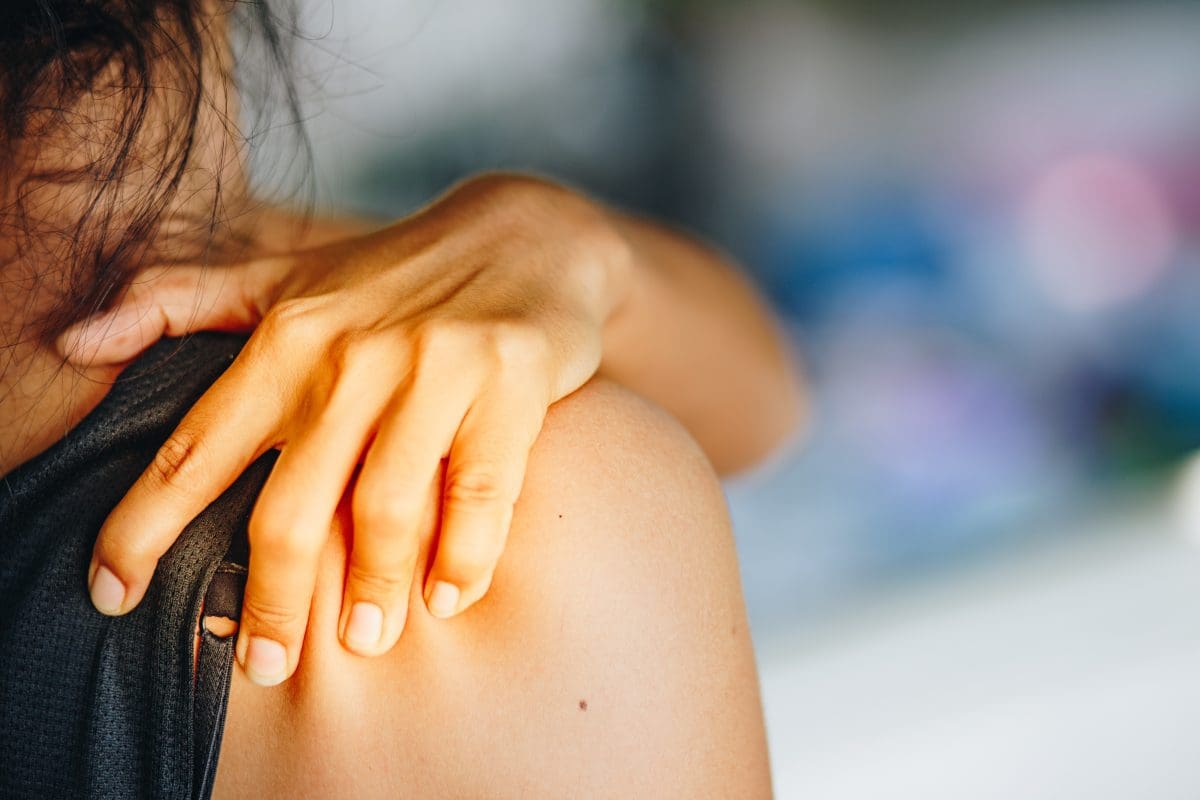A rotator cuff injury is usually a strain or tear of the rotator cuff – the muscles, tendons and joint capsule that stabilises your shoulder. Injury often involves a tear to the rotator cuff tendons (the thick bands of tissue that connect the muscles to the bones).
The most common site of a tear is in the supraspinatus tendon. Severe injuries can cause several of the tendons and muscles to tear.
What is the rotator cuff?
The rotator cuff is a group of muscles and their tendons that hold the shoulder joint in place by attaching the shoulder blade to the humerus (upper arm bone) and covering the head of the humerus. The rotator cuff stabilises the shoulder joint and helps move the shoulder. The 4 muscles (and their tendons) that make up the rotator cuff are:
- the supraspinatus;
- the infraspinatus;
- the subscapularis; and
- the teres minor.
Each muscle attaches to the humerus through a tendon – a thick band of fibrous tissue.
Some of the actions of the rotator cuff are to rotate the upper arm towards the body (internal rotation) and away from the body (external rotation), and to help raise the arm (abduction).

Symptoms
Symptoms of a rotator cuff injury include pain and tenderness in the shoulder, pain on elevating the arm, weakness of the shoulder, and pain when sleeping on the affected side. Pain from the tear may cause awakening at night. Testing of the range of movement and strength of the shoulder, along with special directed tests, can help the doctor determine which of the muscles or tendons has been torn. Sometimes rotator cuff tears can be without symptoms.
A torn cuff may make the shoulder weak, and make daily activities more difficult. It is a common injury, particularly in people over 40 years old. A tear in the rotator cuff will disrupt the normal functioning of the cuff itself and, depending on the severity of the tear, can result in a range of symptoms. Tears may be partial or full thickness, and occur as the result of an injury, or occur as part of the degenerative process.
A partial tear involves the tendon, but does not completely sever it. In some cases, fraying of the tendon can result in a partial tear, and progress to a complete, full thickness tear.
A complete or full thickness tear often occurs at or near the attachment of the tendon to the arm bone, or humerus and may cause significant disability, particularly in younger people.
Causes
Causes of a rotator cuff tear may be from a single incident, such as falling on your arm or outstretched hand, or lifting something too heavy. However, most tears are of the degenerative type, resulting from the tendons wearing down as the body ages. A number of factors play a role in degenerative tears, including repetitive movements in sport or daily life such as overhead arm movements, such as in swimming, baseball, placing items on high shelves, painting and lifting. A reduction of blood supply to the region as we age, along with bony spurs can also contribute. Poor posture can also be a factor.
Risk factors
Risk factors for a rotator cuff injury include:
- Being aged over 40.
- Being an athlete who does repetitive overhead or lifting activities.
- Working as a painter, carpenter or other tradesperson who performs repetitive overhead activities.
Diagnosis
The doctor may require X-rays and ultrasound or MRIs to confirm the diagnosis.
Treatment
The mainstay of treatment includes treating the pain and restoring best possible function. This may include resting the shoulder from aggravating activities, taking anti-inflammatory medicines, and special exercises and physical therapy.
Corticosteroid injections with local anaesthetic are useful in some cases, if other conservative treatments have not helped. Surgery may be needed in patients who have a large or full thickness tear, particularly if they are young, or for long term symptoms or significant weakness and poor function.

